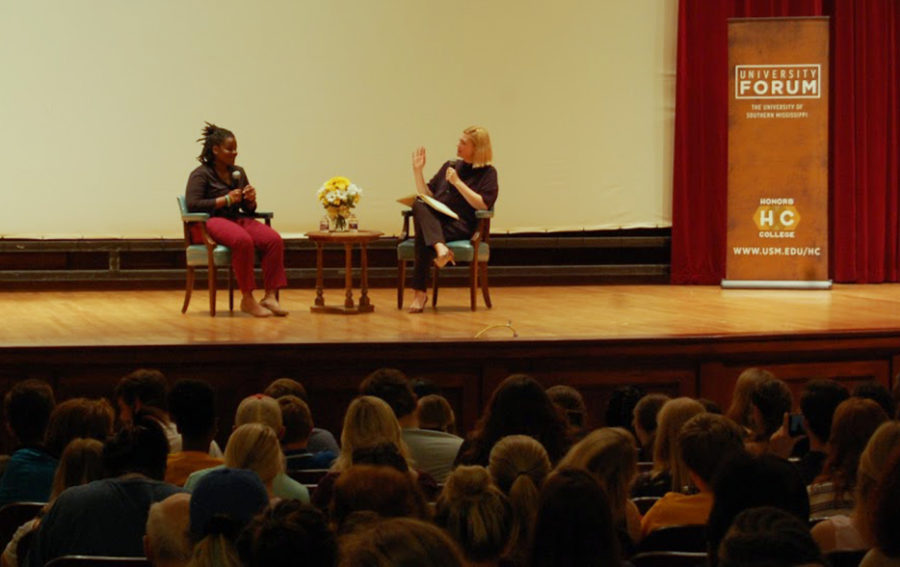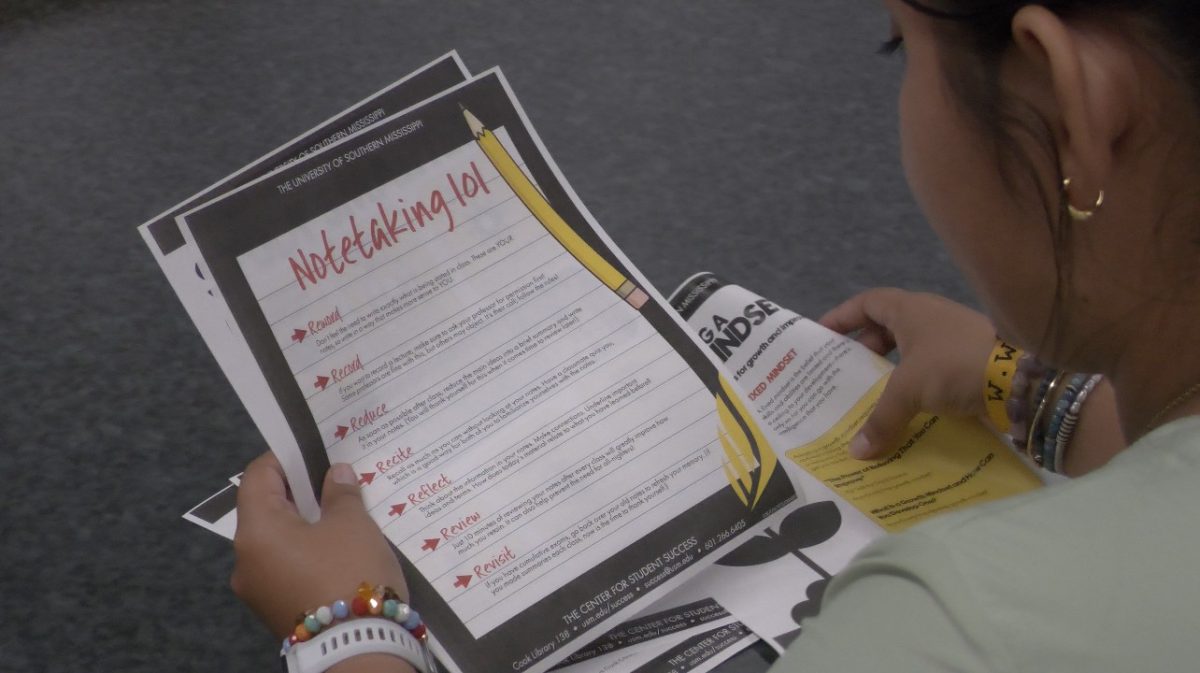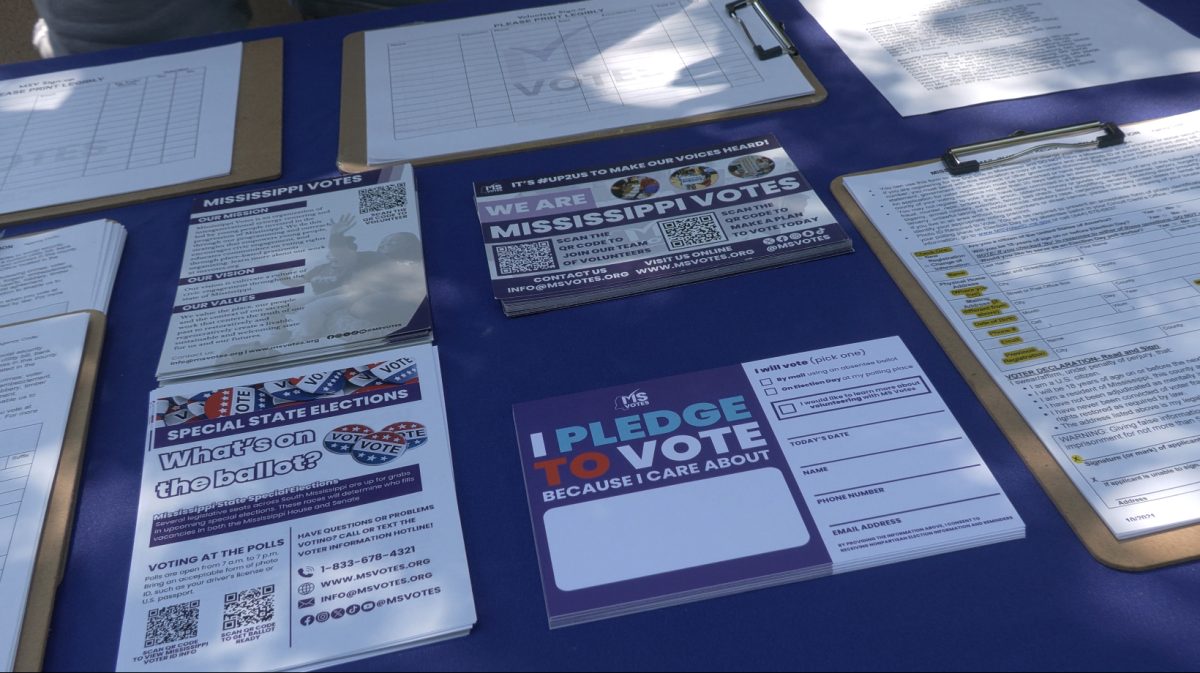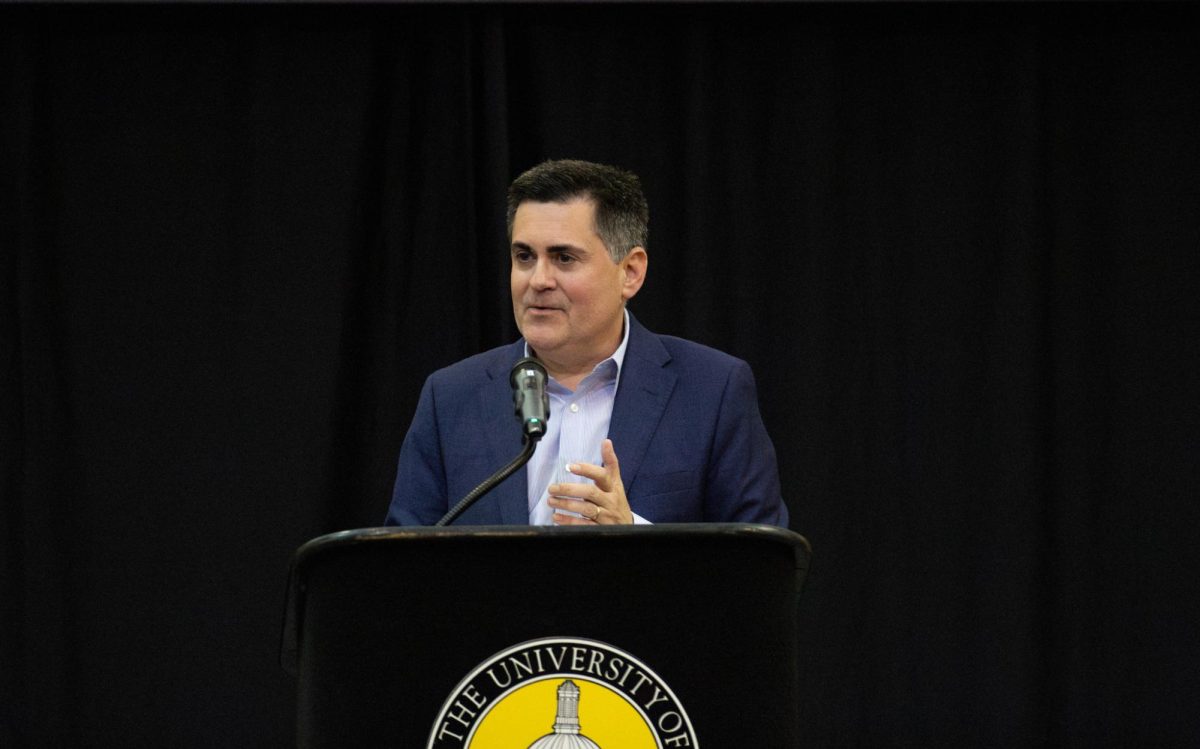Southern Miss welcomed “Brain on Fire” author Susannah Cahalan as the first Forum guest for the 2018-2019 University Forum series Tuesday, Sept. 18. Southern Miss alumna Jasmine Whiteside joined Cahalan to recount their unique experiences with a rare auto-immune disease known as anti-NMDA receptor encephalitis.
According to CBS reporter Michelle Castillo, the disease was first diagnosed in 2007 and occurs when antibodies turn on the brain and cause it to swell. It appears mostly in young women, and the symptoms can be misdiagnosed as psychological disorders.
The Forum began with Vice Provost for Academic Affairs Amy Chasteen Miller, Ph.D., addressing her personal connection to auto-immune disease.
“I don’t know why, when, or how I personally stumbled upon Susannah Cahalan’s book in 2013, but I did. I read her story about her confusing descent into bizarre behavior, distorted perceptions, seizures [and] hospitalizations,” Miller said. “When I read it, it was riveting, but I did not know at the time how important my casual reading would be.”
A few months after reading Cahalan’s memoir, Miller would find herself at the bedside of her Lucky Day mentee, Jasmin Whiteside, at the University of Mississippi Medical Center. Whiteside was in a coma at the time, and it was Miller that insisted she be tested for anti-NMDA receptor encephalitis.
Because of Cahalan’s book, Whiteside was quickly diagnosed with the disease.
“Thank you, Susannah Cahalan, because the vivid picture that you painted seared a memory in my mind of the name of the condition, so that I knew it, and I recognized it when it showed up in the body of a different woman here in Mississippi,” Miller said.
In a documentary by Jared Smith, Miller said Whiteside’s story is a reflection of Southern Miss’ community. Whiteside agreed.
“The support I had from [the Lucky Day Foundation] had a role in how quickly I recovered,” Whiteside said. “The doctors knew I wasn’t just some random person. I’m Jasmine ‘CoCo’ Whiteside.”
“I’ve talked a lot about my condition, and I’ve been to a lot of different places and nothing compares to today,” Cahalan said. “When I heard Jasmine’s story and realized how my story was connected to hers, it blew me away.”
Cahalan went on to discuss her personal experience with the rare disease. She described herself as a 24-year-old journalist in New York City. She feels that because her lifestyle at the time was so fresh, it took her longer to realize that her symptoms were rooted internally. After weeks of being diagnosed with bipolar disorder, schizoaffective disorder and schizophrenia, Cahalan was finally diagnosed with anti-NDMA receptor encephalitis.
Cahalan has no memory of her month-long period of madness and had to completely rely on others’ views on what happened to her in order to write her book. Despite her difficult experience, Cahalan said she is thankful for it.
Like Cahalan, Whiteside has to rely on others’ stories because she has no recollection of her experience. Near the end of the Forum, Cahalan asked Whiteside if she wishes she could take back her experience.
Despite her diagnosis and the six-month coma that followed, Whiteside said, “If I could just watch it, and not have to actually go through it, I would, but I think everything happens for a reason.”
































